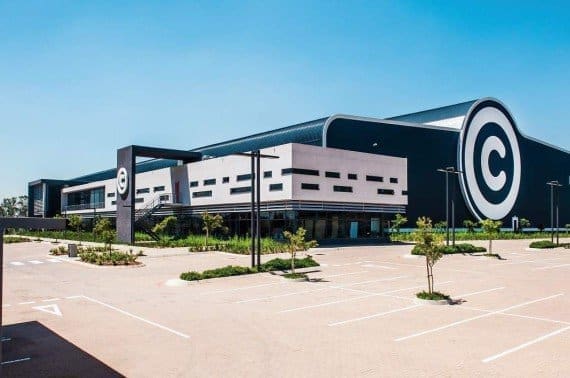Struggling mobile phone operator Cell C is showing no signs of recovery but it seems to be going slowly nowhere.
JSE-listed telecoms group Blue Label Telecoms, which owns 45% of Cell C, informed investors on Thursday that the mobile phone operator incurred trading losses of R1.56 billion, impairments of its property, plant and equipment of R2.2 billion and de-recognised its deferred tax asset of R4.09 billion for the year ended-May 2019.
Blue Label Telecoms said its 45% share amounted to R3.609 billion on the inclusion of the amortisation of intangible assets of R10 million and an expense of R65 million relating to equity-settled share-based payment charges.
As of 31 May 2019, no value was attributed to the underlying value of Cell C and as a consequence thereto the balance of the carrying value of Blue Label’s investment therein, amounting to R2.52 billion was impaired to nil, the JSE-listed company said.
Blue Label Telecoms’ subsidiary The Prepaid Company (TPC’s) share of the value-in-use as at 30 November 2018 amounted to R6.04 billion in Cell C. The valuation declined to
a nil value at 31 May 2019, the company said.
The JSE-listed company said Cell C previously anticipating gaining 6% additional market share by accessing new territories. Instead, Cell C’s market share declined by 2% from 16% in November 2018 to 14% in May 2019.
Cell C’s total subscribers dropped by 2% to 15.9 million.
The mobile phone operator reported R8 billion net loss, after-tax, for the year.
Cell C’s EBITDA decreased by 19% to R3.39-billion in 2019 versus R4.18-billion in 2018, while net debt, excluding finance leases, increased from R7.44 billion to R8.24 billion.
“The net loss after tax includes impairments to the value of R6.275-billion. We performed an annual impairment test on the carrying value of the property, plant, equipment and intangible assets during the 31 May 2019 period,” said Cell C.
Cell C CEO Douglas Craigie Stevenson believes the company still stand a chance to compete and be turned around.
“Our turnaround strategy is focused on ensuring operational efficiencies, restructuring our balance sheet, implementing a revised network strategy, and improving our overall liquidity. Cell C has a real opportunity to address its historical performance through a focus on operations that will restore shareholder value,” he said.
Craigie Stevenson turnaround strategy for Cell C includes:
- Black streaming service – a review of the channel options for the streaming service to ensure a saving of R120 million annually.
- Rebalancing traffic and retail products
- Implementing a cost efficiency programme
- Shifting service revenue back to growth
Furthermore, on 2 August 2018, Cell C procured R1.4 billion of funding from a consortium of financial institutions for 12 months, secured by airtime to the value of R1.75 billion.
In the event of default, a subsidiary of Blue Label Telecoms, The Prepaid Company (TPC) is required to purchase such inventory from the consortium on a piecemeal basis over a specified period.
“These purchases would be made in lieu of purchases that would have been made from Cell C within that period,” the company reiterated.
As of 31 May 2019, the above funding declined from R1.4 billion to R1.25 billion as a result of Blue Label Telecoms purchasing from the security airtime.
At this stage, the financial institutions have agreed to extend the repayment date to 30 November 2019.
“If Cell C is unable to meet this commitment by that date, and no further extension is granted, Blue Label Telecoms will be required to purchase R100 million of security airtime in November 2019 and R300 million per month in December 2019, January 2020 and February 2020 respectively,” the company said.
“It is the intention of TPC to accelerate payments to RMB in order to expunge the distribution of stock in full from the vault by January 2020 if there is risk/indication that Cell C will not be able to meet its obligations to the banking consortium by
30 November 2019.
“Management has performed detailed assessments considering seasonality of trading and has determined that, based on current inventory holdings and anticipated sales cycles, should circumstances dictate the need to purchase the abovementioned inventory from the consortium, acceleration of such payments could well result in the debt being expunged by mid-January through its trading capabilities in the ordinary course of business at normal operating margins.”
Cell C concluded the national roaming agreement on 7 August 2019.
Blue Label Telecoms said this agreement is anticipated to positively impact the cost base and future cash flows on the successful implementation of this transaction.
“Furthermore, the debt within Cell C will require a capital restructure. These ongoing matters cast significant doubt over Cell C’s ability to continue as a going concern should they not materialise”



2 Comments
Pingback: Cell C is in Such Bad Shape It’s Defaulting on Loans
Pingback: Debt-Ridden Cell C Serves Retrenchment Notices to 2500 Employees